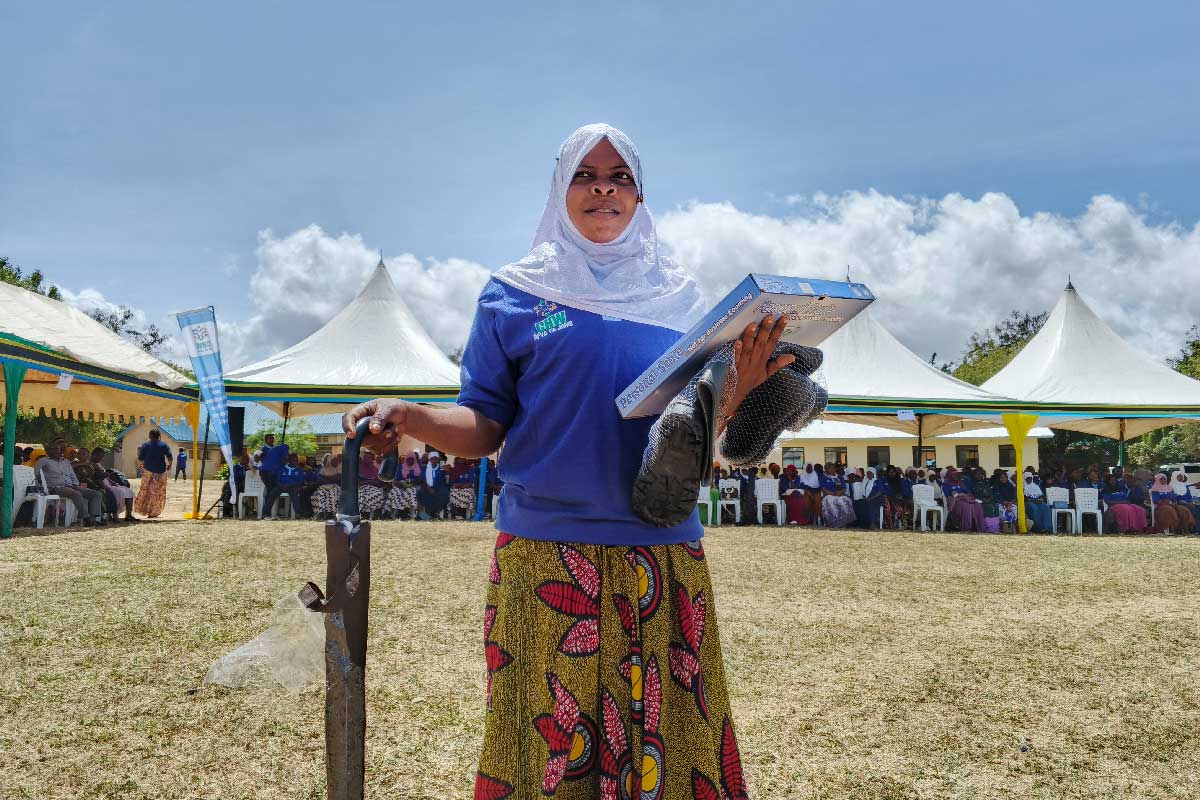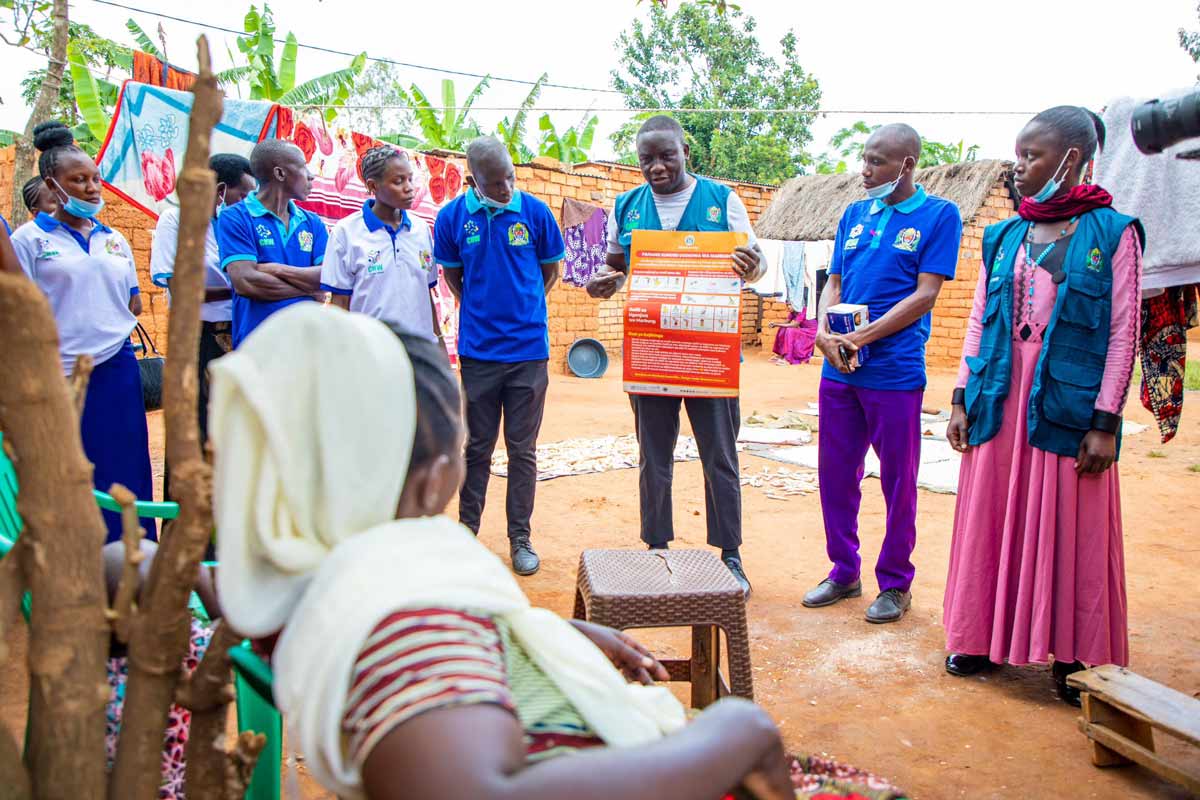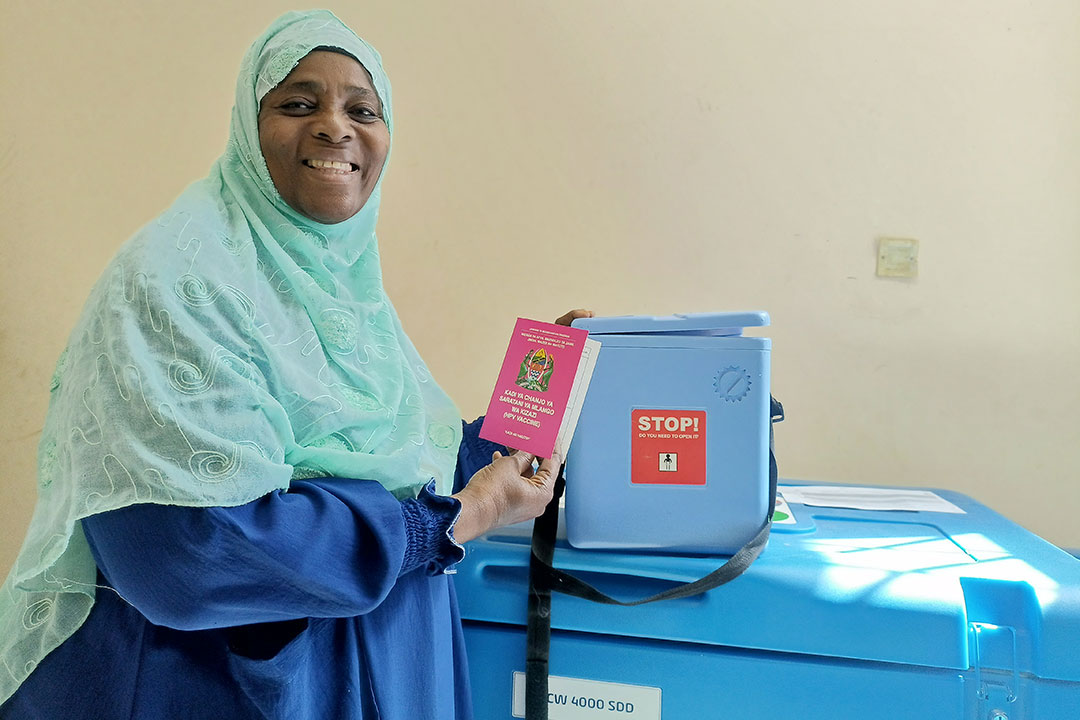Goodluck and Happiness: the returns on Tanzania’s 25-year investment in immunisation
How two aptly named women – both among the first cohort of Tanzanian babies to have been vaccinated with Gavi support – are paying it forward.
- 23 June 2025
- 6 min read
- by Syriacus Buguzi
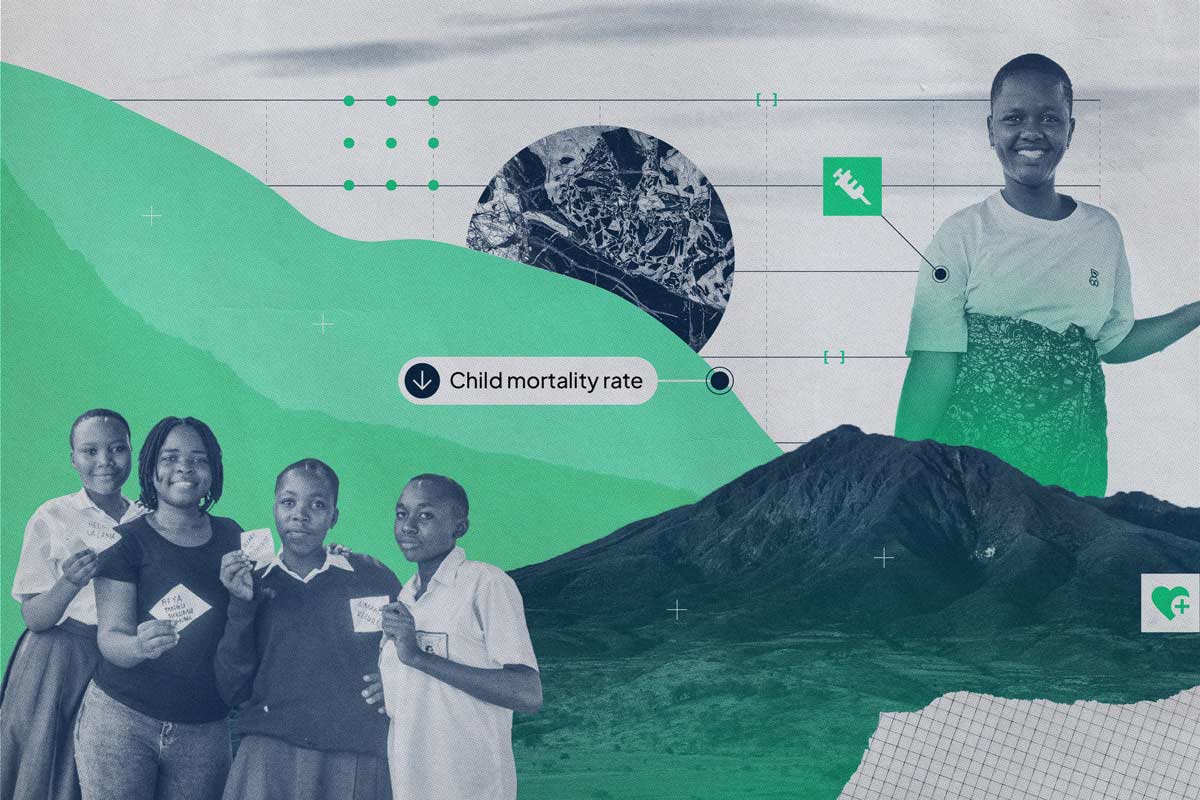
Happiness Nyemo, aged 25, a waitress at one of Dar-es-Salaam’s busiest pubs, moves quickly and efficiently between tables with a serving bucket of cold bottles in one hand. Her polite, professional smile masks her determination: each bottle served, each small tip dropped into her palm, brings her a step closer to realising her ambitions.
Happiness Nyemo, dreamer and mother of one
“One day I will buy a tailor machine for myself, and run my own business, and take my daughter to school,” she says. Tailoring girls’ clothing is her “secret talent”, she says. She dreams of her own shop, and choosing her own hours.
But for now, it’s the urban hustle. For a single mother living in a rented room in the city, every shilling, and every minute, counts.
Despite her busy schedule, Nyemo says she’ll always find time for a trip to the clinic when her daughter’s immunisation appointments roll around. Vaccination is a deeply-ingrained tradition in Nyemo’s family, she says: her own mother is vocal about her conviction that, “Vaccines were vital for our survival as children.”
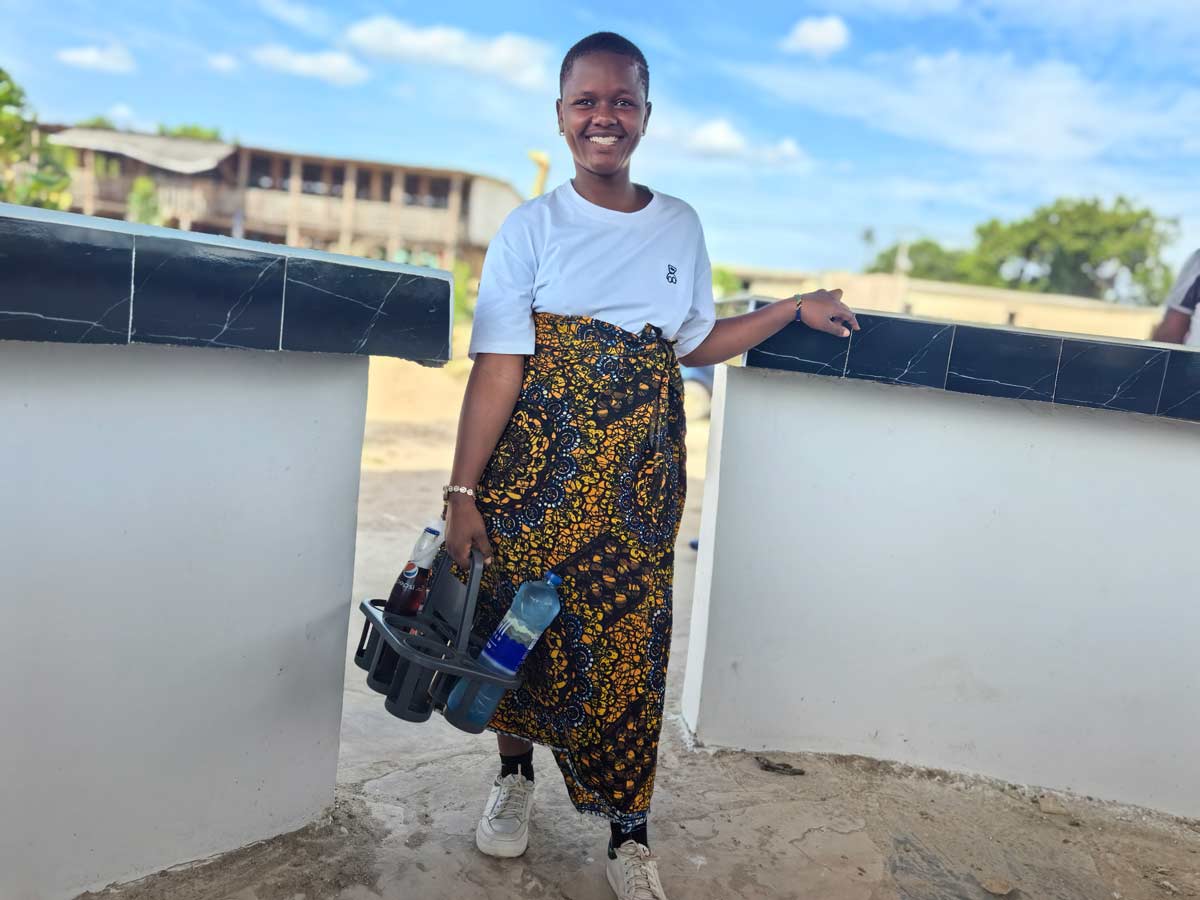
Born 25 years ago, in a different Tanzania
Today, Nyemo’s mother lives in the city too, and helps manage her granddaughter’s vaccination schedule. But when Happiness was born in 2001, her parents were small farmers in a remote, quiet village in Bahi, Dodoma.
Through the early 2000s, vaccines were becoming more readily available in her area – she remembers accompanying her young brother to the clinic for his shots – but she grew up hearing tales of a terrifying and not-so-distant past from older relatives.
“I heard that in the past when children were not vaccinated, their necks might become stiff, they might suffer from prolonged cough, or get rashes throughout their bodies… they might die, and don’t grow well because of sickness,” she recalls. “Now that I have a child, that makes me fear. “
In fact, in 2000, just one year before Happiness came into the world, under-five mortality in Tanzania stood at 128 deaths per 1,000 live births – more than three times the 2023 rate of 39 fatalities per 1,000 children born.
2000 was also the year that Gavi, the Vaccine Alliance, was founded in Geneva, with a mandate to improve access to vaccination in the poorest parts of the world. By 2001, the fledgling organisation was supporting vaccination in Tanzania, where immunisation rates soon began to swell.
In 2001, 87% of children had been inoculated with three doses of the basic diphtheria, tetanus and pertussis containing vaccine that is used as a conventional stand-in for immunisation coverage in general. By 2003, that figure stood at 95%. Progress since has been neither easy nor linear – after a hefty COVID-19 dip in immunisation coverage, Tanzania is back at 93%, and the country’s dedicated health service is fighting to extend protection further.
Nyemo has seen them at work. Nurses at Amana Regional Referral Hospital in Dar-es-Salaam, where she gave birth to her “mtundu sana” – naughty and playful – little girl, “are very strict,” about the importance of never missing a dose of vaccines. In Nyemo’s case, they are preaching to the converted: “The emphasis I always saw from my mother about being strict on being vaccinated, made me feel that I should always take my child to the clinic routinely,” she says.
For Nyemo, each trip to the health facility is an investment of hope in her daughter’s future, so that one day she, too, can build towards a dream future.
Faustina Goodluck, environmental health scientist and entrepreneur
Like Happiness , Faustina Goodluck was born in 2001; she too, would be one of the first infants in Tanzania vaccinated with the support of the Vaccine Alliance.
Today, at 25, Goodluck is bringing that investment in health and human potential full circle. Once a healthy, protected baby, she has grown up to dedicate her life to protecting others as an environmental health scientist.
Goodluck was born at Masana Hospital in Tanzania’s Kilimanjaro region – already a marker of advantage in a time when 65% of rural-dwelling women were giving birth at home. “My family is a middle-income earning one, and what I came to hear when I grew up is that by that time, health facilities had been improved a bit.” Still, by her reckoning, a majority of people living in the surrounding communities were relying on traditional herbs and remedies for their health.
Goodluck’s path was different. She remembers her parents telling her about vaccination when she was about six years old, and explaining to her that the mark on her shoulder was a scar from an immunisation she’d received as an infant.
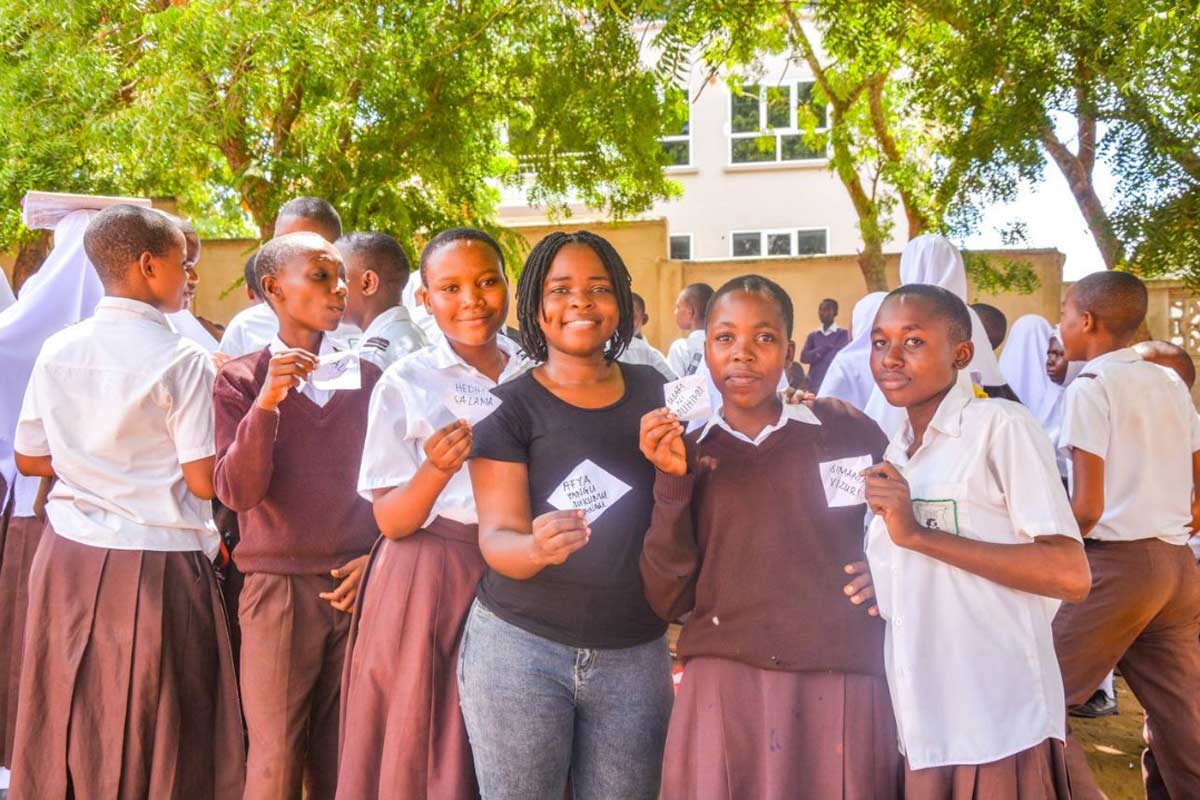
Sharing health
“My inspiration to work in healthcare came as a result of the challenges we face in daily life,” she says. “From the different experiences from my community, from my family itself, I got the inspiration to work in healthcare, especially in the preventive part: I believe prevention is better than cure.”
Her vision for her own future, she says, led her to the Muhimbili University of Health and Allied Sciences (MUHAS), Tanzania’s top medical university. She graduated in 2024 with a BSc in Environmental Health.
“It had been my dream to see a society that can prevent diseases,” she says with a determined smile. “And I believe I have lived a healthy life to see this dream become a reality. I believe that the vaccines have guaranteed my health to achieve my dream.
“I know that in the past, when vaccines were not accessible to communities, this was a distant dream, [and people] did not make it to see their full potential.”
Have you read?
Distributing doses of information
As an environmental health scientist, Goodluck’s work is deeply rooted in empowering communities through knowledge. “My approach is built on the fact that ignorance contributes to infections and disease, so my approach is to ensure knowledge is disseminated,” she explains. In her routine community awareness programmes, she champions vaccination as a cornerstone of preventive health.
“In the past, when vaccines were not accessible, communities did not make it to see or experience their full potential,” she laments.
In her short life, she says she has witnessed their transformative power. “Vaccines have helped to keep us as healthy as possible to achieve our dreams, [like by] protecting against tetanus, COVID-19 and HPV.”
Beyond science, Goodluck leverages her talents as a writer, speaker, and planner. Her leadership aspirations led her to found Mlo Hub, a start-up providing nutritional services. “My dream is to run a big business tailored on prevention of diseases,” she says, adding that “Proper nutrition is one way towards boosting people’s immunity.”
Goodluck remains dedicated to prevention, striving to leave a lasting legacy in community health.
